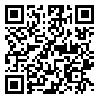1. Battagliese G, Caccetta M, Luppino OI, Baglioni C, Cardi V, Mancini F, et al. Cognitive-behavioral therapy for externalizing disorders: A meta-analysis of treatment effectiveness. Behav Res Ther. 2015;75:60–71. [
DOI]
2. Riise EN, Wergeland GJH, Njardvik U, Öst LG. Cognitive behavior therapy for externalizing disorders in children and adolescents in routine clinical care: a systematic review and meta-analysis. Clin Psychol Rev. 2021;83:101954. [
DOI]
3. DuPaul GJ, Morgan PL, Farkas G, Hillemeier MM, Maczuga S. Academic and social functioning associated with attention-deficit/hyperactivity disorder: latent class analyses of trajectories from kindergarten to fifth grade. J Abnorm Child Psychol. 2016;44(7):1425–38. [
DOI]
4. Franke B, Michelini G, Asherson P, Banaschewski T, Bilbow A, Buitelaar JK, et al. Live fast, die young? a review on the developmental trajectories of ADHD across the lifespan. Eur Neuropsychopharmacol. 2018;28(10):1059–88. [
DOI]
5. Scott JG, Giørtz Pedersen M, Erskine HE, Bikic A, Demontis D, McGrath JJ, et al. Mortality in individuals with disruptive behavior disorders diagnosed by specialist services – a nationwide cohort study. Psychiatry Res. 2017;251:255–60. [
DOI]
6. Sörberg Wallin A, Koupil I, Gustafsson JE, Zammit S, Allebeck P, Falkstedt D. Academic performance, externalizing disorders and depression: 26,000 adolescents followed into adulthood. Soc Psychiatry Psychiatr Epidemiol. 2019;54(8):977–86. [
DOI]
7. Buist KL, Verhoeven M, Hoksbergen R, Ter Laak J, Watve S, Paranjpe A. Associations of perceived sibling and parent-child relationship quality with internalizing and externalizing problems: comparing indian and dutch early adolescents. J Early Adolesc. 2017;37(8):1163–90. [
DOI]
8. Lochman JE, Powell NP, Boxmeyer CL, Jimenez-Camargo L. Cognitive-behavioral therapy for externalizing disorders in children and adolescents. Child Adolesc Psychiatr Clin N Am. 2011;20(2):305–18. [
DOI]
9. Dodge KA. Do social information-processing patterns mediate aggressive behavior? In: Lahey BB, Moffitt TE, Caspi A; editors. auses of conduct disorder and juvenile delinquency. New York: Guilford Press; 2003.
10. Kendall PC. Guiding theory for therapy with children and adolescents. In: Kendall PC; editor. Child and adolescent therapy: cognitive-behavioral procedures. New York: Guilford Press; 2006.
11. Sukhodolsky DG, Kassinove H, Gorman BS. Cognitive-behavioral therapy for anger in children and adolescents: a meta-analysis. Aggress Violent Behav. 2004;9(3):247–69. [
DOI]
12. Sukhodolsky DG, Wyk BCV, Eilbott JA, McCauley SA, Ibrahim K, Crowley MJ, et al. Neural mechanisms of cognitive-behavioral therapy for aggression in children and adolescents: design of a randomized controlled trial within the national institute for mental health research domain criteria construct of frustrative non-reward. J Child Adolesc Psychopharmacol. 2016;26(1):38–48. [
DOI]
13. Podell JL, Kendall PC. Mothers and fathers in family cognitive-behavioral therapy for anxious youth. J Child Fam Stud. 2011;20(2):182–95. [
DOI]
14. Walkup JT, Albano AM, Piacentini J, Birmaher B, Compton SN, Sherrill JT, et al. Cognitive behavioral therapy, sertraline, or a combination in childhood anxiety. N Engl J Med. 2008;359(26):2753–66. [
DOI]
15. Sanders MR, McFarland M. Treatment of depressed mothers with disruptive children: a controlled evaluation of cognitive behavioral family intervention. Behav Ther. 2000;31(1):89–112. [
DOI]
16. Wood JJ, Piacentini JC, Southam-Gerow M, Chu BC, Sigman M. Family cognitive behavioral therapy for child anxiety disorders. J Am Acad Child Adolesc Psychiatry. 2006;45(3):314–21. [
DOI]
17. Pianta RC, Nimetz SL, Bennett E. Mother-child relationships, teacher-child relationships, and school outcomes in preschool and kindergarten. Early Child Res Q. 1997;12(3):263–80. [
DOI]
18. Abareshi Z, Tahmasian K, Mazaheri M, Panaghi L. The impact of psychosocial child development training program, done through improvement of mother-child interaction, on parental self-efficacy and relationship between mother and child under three. Journal of Research in Psychological Health. 2009;3(3):49–58. [Persian] [
Article]
19. Gaviţa OA, David D, Bujoreanu S, Tiba A, Ionuţiu DR. The efficacy of a short cognitive–behavioral parent program in the treatment of externalizing behavior disorders in Romanian foster care children: building parental emotion-regulation through unconditional self- and child-acceptance strategies. Child Youth Serv Rev. 2012;34(7):1290–7. [
DOI]
20. Sukhodolsky DG, Smith SD, McCauley SA, Ibrahim K, Piasecka JB. Behavioral interventions for anger, irritability, and aggression in children and adolescents. J Child Adolesc Psychopharmacol. 2016;26(1):58–64. [
DOI]
21. Daryabeigi M, Pourmohamdreza-Tajrishi M, Dolatshahi B, Bakhshi E. The effectiveness of cognitive-behavioral therapy on internalizing problems of children with externalizing disorders. Iranian Journal of Rehabilitation. 2020;18(2):193–202. [Persian] [
DOI]
22. Benner GJ, Nelson JR, Sanders EA, Ralston NC. Behavior intervention for students with externalizing behavior problems: primary-level standard protocol. Except Child. 2012;78(2):181–98. [
DOI]
23. Lochman JE, Boxmeyer CL, Jones S, Qu L, Ewoldsen D, Nelson WM. Testing the feasibility of a briefer school-based preventive intervention with aggressive children: a hybrid intervention with face-to-face and internet components. J Sch Psychol. 2017;62:33–50. [
DOI]
24. Masi G, Milone A, Paciello M, Lenzi F, Muratori P, Manfredi A, et al. Efficacy of a multimodal treatment for disruptive behavior disorders in children and adolescents: focus on internalizing problems. Psychiatry Res. 2014;219(3):617–24. [
DOI]
25. Eyberg SM, Nelson MM, Boggs SR. Evidence-based psychosocial treatments for children and adolescents with disruptive behavior. J Clin Child Adolesc Psychol. 2008;37(1):215–37. [
DOI]
26. Reyno SM, McGrath PJ. Predictors of parent training efficacy for child externalizing behavior problems – a meta‐analytic review. J Child Psychol Psychiatry. 2006;47(1):99–111. [
DOI]
27. Atzaba-Poria N, Deater-Deckard K, Bell MA. It takes more than one for parenting: how do maternal temperament and child's problem behaviors relate to maternal parenting behavior? Pers Individ Dif. 2014;69:81–6. [
DOI]
28. Lochman JE, Matthys W. The Wiley handbook of disruptive and impulse-control disorders. John Wiley & Sons, Ltd; 2018.
29. Leijten P, Melendez-Torres GJ, Eradus M, Overbeek G. Specificity of parenting program component effects: relational, behavioral, and cognitive approaches to children's conduct problems. J Am Acad Child Adolesc Psychiatry. 2022;61(3):458–60. [
DOI]

 ، سعید حسن زاده*2
، سعید حسن زاده*2 
 ، سمیرا وکیلی3
، سمیرا وکیلی3 
 ، سوگند قاسم زاده4
، سوگند قاسم زاده4 




